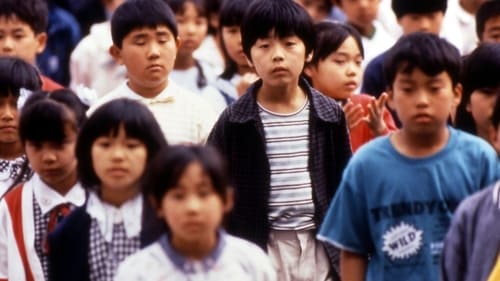
Director
Short animation by Saeko Suzuki

Music
Short animation by Saeko Suzuki

Original Music Composer
Macross Delta está ambientado en el año 2067, ocho años después de los eventos de Macross Frontier. La historia se centra en Walküre, un equipo de ídolos talentosos y el Escuadrón Delta, un equipo de experimentados pilotos de Valkyrie mientras luchan contra el Síndrome de Var, un fenómeno misterioso que está consumiendo la galaxia, junto con el misterioso equipo de caza Valkyrie de los Caballeros Aéreos del Reino. de viento Esta película recopila escenas del anime televisivo con nuevas escenas para contar una historia diferente.

Music
Fuyuki tiene un sueño donde ve figuras en llamas y a la tropa Keroro en gris y termina con una extraña estatua moai llamada "Fuyuki-dono". Cuando se despierta, la chica misteriosa Alisa le lanza una estatua moai exactamente como la de su sueño. Tiene un extraño parecido con Keroro. Le pide a Keroro que lo lleve a la Isla de Pascua, el lugar de origen de los moai, para investigar. Keroro quiere construir una base secreta en la isla y acepta llevárselo.

Music
An anthology exploring the meaning of the Japanese greeting goaisatsu.

Music
Via the New York Times: "The solemn, intent faces of the Japanese schoolboys playing video games in Jun Ichikawa's "No Life King" bespeak a new type of modern horror. Addicted to their favorite new game (from which the film takes its title), these children have become seriously estranged from the real world. The film's constant emphasis is on the ways in which this has been allowed to happen, and on how emblematic it is of larger attitudes in a technological society. When a young boy trying to converse with his mother must compete with a home computer for her attention, it's not hard to see why the boy has retreated into his own computer-dominated world."

Via the New York Times: "The solemn, intent faces of the Japanese schoolboys playing video games in Jun Ichikawa's "No Life King" bespeak a new type of modern horror. Addicted to their favorite new game (from which the film takes its title), these children have become seriously estranged from the real world. The film's constant emphasis is on the ways in which this has been allowed to happen, and on how emblematic it is of larger attitudes in a technological society. When a young boy trying to converse with his mother must compete with a home computer for her attention, it's not hard to see why the boy has retreated into his own computer-dominated world."



